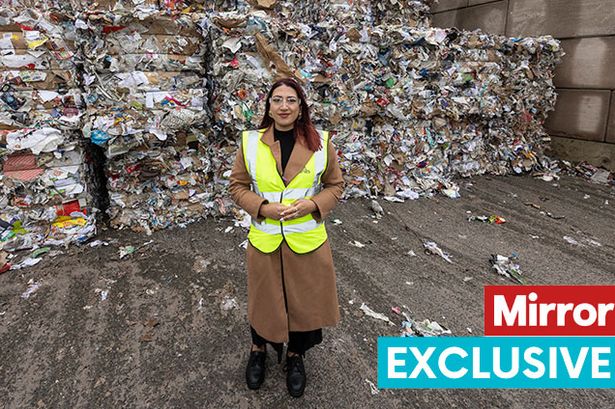The Kemsley Paper Mill, a behemoth in the recycling industry, operates on a scale that dwarfs the post-holiday debris scattered across living rooms nationwide. While the average household might grapple with a mountain of discarded gift wrap and greeting cards, Kemsley processes a staggering 144 lorry-loads of waste paper daily, a testament to the sheer volume of paper consumed and discarded in modern society. This relentless influx of material fuels a complex and fascinating industrial process, transforming mountains of discarded paper into a valuable resource and highlighting the critical role of recycling in mitigating environmental impact.
The journey of each piece of paper arriving at Kemsley begins long before it reaches the mill’s gates. From discarded newspapers and magazines to packaging materials and office documents, the paper originates in homes, businesses, and institutions across the country. Collection networks, ranging from kerbside recycling bins to large-scale commercial waste management systems, gather this discarded material, sorting and consolidating it into manageable bundles for transport. This intricate logistical network ensures a constant stream of raw material flows towards Kemsley, feeding the insatiable appetite of its massive recycling operation. The sheer quantity of incoming material – 144 lorries per day – underscores not only the scale of paper consumption but also the growing awareness of the importance of recycling.
Upon arrival at Kemsley, the mountains of paper embark on a transformative journey. The initial stages involve a meticulous sorting process, separating different paper grades and removing contaminants like plastic, staples, and other non-paper materials. Giant pulpers then churn the sorted paper into a slurry, a watery mixture of cellulose fibers. This pulpy concoction undergoes a series of cleaning and refining processes, removing ink, adhesives, and other impurities. Chemicals and specialized equipment work in concert to break down the paper fibers, separating them from unwanted elements and preparing them for their rebirth as new paper. This meticulous purification process ensures the resulting paper meets stringent quality standards, suitable for a wide range of applications.
The cleaned and refined pulp then flows onto massive papermaking machines, where the magic of transformation truly unfolds. A carefully controlled web of pulp is spread onto a moving mesh, where water is rapidly drained, leaving behind a thin layer of interconnected fibers. This delicate sheet is then pressed, dried, and calendered – a process of smoothing and compressing the paper to achieve the desired texture and thickness. The result is a continuous roll of fresh, recycled paper, ready to be converted into a myriad of products, from newspapers and magazines to packaging and printing paper. This intricate process demonstrates the remarkable ability of recycling to transform waste into valuable resources, contributing to a circular economy.
The environmental implications of Kemsley’s operations are profound. By diverting vast quantities of paper from landfill, the mill significantly reduces the burden on waste disposal systems. Landfill sites, notorious for contributing to greenhouse gas emissions and environmental degradation, are spared the influx of decomposing paper. Moreover, recycling paper requires significantly less energy and resources compared to producing virgin paper from trees. This translates into a smaller carbon footprint and a reduced demand on natural resources like wood and water. The Kemsley Paper Mill, therefore, serves as a powerful example of how industrial-scale recycling can contribute to a more sustainable future.
Beyond its environmental benefits, Kemsley also plays a vital economic role. The mill provides employment for a significant workforce, contributing to local economies and supporting communities. Furthermore, the recycled paper produced at Kemsley serves as a valuable resource for various industries, providing a sustainable alternative to virgin paper. By closing the loop on paper consumption, Kemsley fosters a circular economy, where waste is transformed into valuable resources, reducing reliance on virgin materials and minimizing environmental impact. The Kemsley Paper Mill, therefore, represents a compelling example of how industry and environmental stewardship can converge to create a more sustainable and prosperous future.














